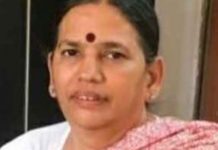The BJP — which emerged as the single largest party in the Karnataka Assembly polls but fell eight seats short of a majority — finally managed to make its candidate BS Yeddyurappa chief minister on May 17. After a high-voltage legal battle in the Supreme Court over the issue, Yeddyurappa was sworn in as the chief minister of Karnataka for second time. The 75-year-old Lingayat strongman has been given 15 days to prove his majority in the Assembly.
Earlier in the day, the Supreme Court had refused to stay Yeddyurappa’s swearing-in as Karnataka CM after a rare pre-dawn hearing which saw the Congress-JD (S) combine making a last-ditch attempt to stall the saffron party’s surge in the southern state. The apex court, which commenced the hearing at 2.11 am and ended at 5.28 am, however, made it clear that the swearing-in and the government formation in the state would be subject to the final outcome of the case before it.
The whole political drama of forming the government had begun soon after the results were out on May 15. While the Congress had backed third-placed rival JD(S) for a post-poll alliance in bid to keep the saffron party out of power, Yeddyurappa had also staked claim to form the government.
Not everyone was happy with the Yeddyurappa’s oath ceremony. Senior lawyer and jurist Ram Jethmalani moved the Supreme Court in his personal capacity against the Karnataka governor’s decision to invite the BJP to form government in the state, saying it was a “gross abuse of constitutional power”.
Accusing the BJP and the RSS of capturing every democratic institution in country, Congress president Rahul Gandhi has lashed out at the BJP-led government at the Centre, saying Constitution was under “severe attack” in the country where an atmosphere of fear prevailed. Puducherry Chief Minister V Narayanasamy has also slammed the Karnataka Governor’s invite to Yeddyurappa to form the government, saying the state now “witnesses murder of democracy”. The senior Congress leader said Vala’s action was not correct particularly when the Congress-JDS combine had the numerical strength required to form the government.
The BJP bagged 104 seats, a gain of 64 , while the Congress notched 78, a loss of 44 seats, though its vote share was nearly two percentage points more than the saffron party. The JD(S) secured 37 seats, down by three from its previous tally. In terms of vote share Congress secured 38 percent compared to rival BJP’s 36.2 percent.
In a roller-coaster ride for BJP, it initially appeared that the party was set to return to power after a five-year hiatus with a resounding majority. However, at the end of counting of votes it came tantalisingly close to 112 needed to form the government. “I thank my sisters and brothers of Karnataka for steadfastly supporting the BJP’s development agenda and making BJP the single largest party in the state. I salute the stupendous work of BJP karyaakartas (workers) who toiled round the clock and worked for the party,” tweeted Prime Minister Narendra Modi who was the main campaigner and the face of BJP in the assembly elections.
The Congress was confident of defeating the anti-incumbency with its social engineering and emotional regional appeal. Results show that the party overrated Chief Minister Siddarmaiah’s capability and almost gave him a free hand in choosing the candidates. The man could not come up to the expectations. However, the percentage of votes he could secure for the party proves that had he worked out a better management strategy, he would have won the elections.
Siddaramaiah himself lost by a huge margin of 36,042 votes in his traditional constituency of Chamundeshwari in Mysuru to JDS’ G T Deve Gowda. He, however, managed to scrape through in Badami in north Karnataka, where he won by a slender margin of 1,696 votes after a see-saw battle against BJP’s B Sriramulu, a close associate of the mining baron Reddy brothers. Yeddyurappa won the Shikaripura seat by a margin of over 35,000 votes while Kumaraswamy won convincingly in both Channapatna and Ramanagara.
The free fall of the Congress in Karnataka – where it shrank from 122 to 78 seats – was blamed largely on its failure to improve its standing among the state’s most backward castes despite CM Siddaramaiah focusing on them through schemes that provided free milk to students and free grain to the poorest families. Of the 224 seats in Karnataka, 51 are reserved for scheduled castes and scheduled tribes; the Congress cornered just 18 as compared to 26 in the last poll.
 Siddarmaiah, according to experts, also ignored the ground situations and social equations in different parts of Karnataka. Local people say that he tried to form a caste alliance which was not suitable for the state. In the process, he ended up gaining support of his own caste only. JDS successfully mobilized the support of dominant Vokaliggas and the BJP of Lingayats. They are very in high numbers. The support of Mayawati’s BSP also helped HD Deve Gowda’s party to win more seats.
Siddarmaiah, according to experts, also ignored the ground situations and social equations in different parts of Karnataka. Local people say that he tried to form a caste alliance which was not suitable for the state. In the process, he ended up gaining support of his own caste only. JDS successfully mobilized the support of dominant Vokaliggas and the BJP of Lingayats. They are very in high numbers. The support of Mayawati’s BSP also helped HD Deve Gowda’s party to win more seats.
BSP, on its part, got its first ever MLA N Mahesh, elected from Kollegal seat, in the southern state and their first in 25 years, while the JDS won as many as 11 out of 38 seat, piggybacking on support from Dalit-dominant outfit, in comparison to ending up as first or second-runner up in 2013 in the same corresponding seats. These seats include Mallavali, Mandya, Nagamangala, Hunsur, Sakaleshwara, Srirangpatna, Devanhalli, Ramnagara and Channapatna.
The Karnataka Pragyavantha Janatha Party (KPJP) – which was in turmoil due to the differences between its founders and actor Upendra – also opened its account, as its candidate R Shankar won Ranebennur constituency. Though an independent candidate has won Malur constituency, he is backed by the Congress.
Rahul Gandhi and his party are facing challenges from the non-BJP parties since drubbings in the UP assembly polls last year in gaining the leadership of a proposed anti-BJP front. Thus, the Karnataka polls were crucial in more than one ways. The defeat of SP-Congress alliance had led non-Congress opposition parties to assert that he was not fit enough to sway the polls.
Internally, a tough fight put up against Prime Minister Modi in Gujarat gave the Congress the confidence to elect him to the post of party president. Since then, the party is eyeing the leadership of the anti-BJP coalition, which is yet to take a formal shape. Many opposition leaders including NCP supremo Sharad Pawar and senior socialist leader Sharad Yadav had lent their support to the idea of creating a Congress-led anti-BJP front to take on Narendra Modi’s party in 2019 Lok Sabha elections.
 Unfortunately, the latest Karnataka results may hurt the prospective proposition. Now, Congress may not be able to vie for the leadership of the proposed anti-BJP coalition for the 2019 general election. An indirect attack has already come from West Bengal Chief Minister Mamata Banerjee, who has been working for an alliance of all the regional parties to defeat the saffron party. She has been trying to form an alliance with Congress at national level. Mamata, the first to bat for the secular alliance between Congress and JDS, tweeted that had it been a Congress-JDS alliance, results would have been very different.
Unfortunately, the latest Karnataka results may hurt the prospective proposition. Now, Congress may not be able to vie for the leadership of the proposed anti-BJP coalition for the 2019 general election. An indirect attack has already come from West Bengal Chief Minister Mamata Banerjee, who has been working for an alliance of all the regional parties to defeat the saffron party. She has been trying to form an alliance with Congress at national level. Mamata, the first to bat for the secular alliance between Congress and JDS, tweeted that had it been a Congress-JDS alliance, results would have been very different.
The proposed coalition has other problems too. In few states that include Andhra Pradesh and Telangana, Congress is fighting against regional parties. Sending out a message for the grand old party of India, Banerjee emphasised on the need for national parties to recognise the significance of regional players in the evolving political scenario. “India is a vast country. Every state has their own identity. National parties have to consider the regional aspiration and regional expectation of the people. Both Congress and BJP must realise this,” she said.
The Left, among the biggest proponents of opposition unity, had welcomed the Congress’ decision to support JD(S). CPM general secretary Sitaram Yechury said this was the need of the hour to defeat the BJP but advised the Congress to be more “realistic and accommodative of regional parties”. The CPI blamed the Congress for its failure to take the “initiative to forge secular forces’ unity” because of their “over-confidence”. CPI general secretary Suvarna Reddy said if the post-poll “wisdom of unity” had prevailed before the elections, Congress and JDS could have produced better numbers together.
The usual practice is for the governor to call the leader of the single largest party or pre-poll alliance to form the government, and in the event of a hung Assembly, asks him to prove the majority on the floor of the House. The Constitution empowers a Governor to appoint a chief minister, but remains silent on the order or precedence in case of a fractured mandate.
letters@tehelka.com












